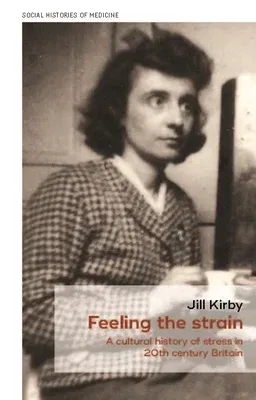Jill Kirby
(Author)Feeling the Strain: A Cultural History of Stress in Twentieth-Century BritainPaperback, 8 June 2021

Qty
1
Turbo
Ships in 2 - 3 days
Only 2 left
Free Delivery
Cash on Delivery
15 Days
Free Returns
Secure Checkout

Part of Series
Social Histories of Medicine
Print Length
272 pages
Language
English
Publisher
Manchester University Press
Date Published
8 Jun 2021
ISBN-10
1526156091
ISBN-13
9781526156099
Description
Product Details
Author:
Book Format:
Paperback
Country of Origin:
US
Date Published:
8 June 2021
Dimensions:
21.59 x
13.97 x
1.45 cm
ISBN-10:
1526156091
ISBN-13:
9781526156099
Language:
English
Location:
Manchester
Pages:
272
Publisher:
Series:
Weight:
317.51 gm